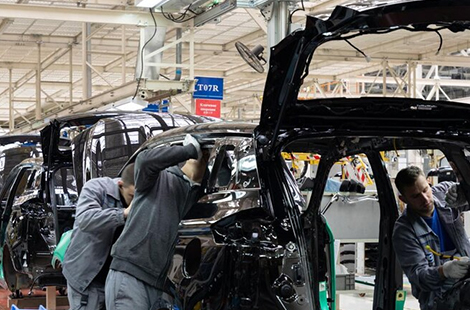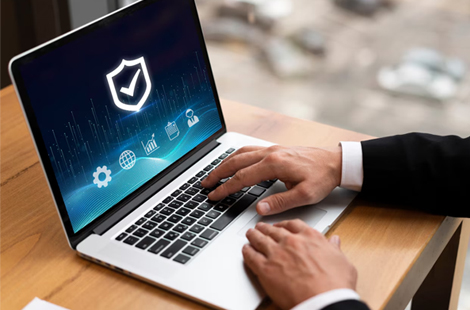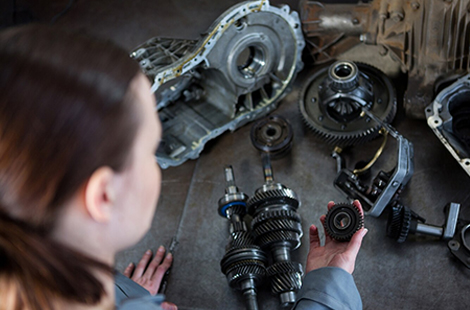The FMCG sector, characterized by its rapid turnover and widespread consumer reach, faces a critical challenge that undermines brand integrity, profits, and consumer safety. The impact of counterfeit goods is not just a mere inconvenience but a multifaceted problem affecting various aspects of the industry and society at large. This problem is exemplified by the alarming rate at which the counterfeit market in the FMCG sector is growing, with an annual increase rate of 44.4%, significantly obstructing the growth of manufacturers and posing a risk to consumer health and safety. This brings us to the crux of why anti-counterfeit technology is not just important but indispensable in the FMCG industry.
Protecting Brand Integrity
For FMCG brands, reputation and trust are everything. A single instance of a counterfeit product can lead to significant damage to a brand’s image, eroding consumer trust and loyalty painstakingly built over the years. Counterfeit goods, often of inferior quality, can lead to negative consumer experiences, directly impacting brand perception and, consequently, sales and revenue. The FMCG sector’s battle against counterfeits is evident from the estimated 30% business loss attributed to fake products, underscoring the urgency for anti-counterfeit measures. Anti-counterfeit technology helps safeguard brand integrity by ensuring that the products reaching consumers are genuine, maintaining the quality and reputation associated with the brand.
Safeguarding Consumer Health and Safety
The FMCG industry includes a wide range of products, including food, beverages, personal care, and pharmaceuticals, directly impacting consumer health and safety. Counterfeit goods in this sector pose a serious risk to consumers, potentially leading to health hazards and, in extreme cases, fatalities. By implementing robust anti-counterfeit solutions, companies can significantly mitigate these risks, ensuring that consumers receive safe and authentic products.
Combatting Revenue Loss and Funding of Illegal Activities
The economic repercussions of counterfeiting extend beyond individual brands, affecting the broader economy. Counterfeit sales divert revenue from legitimate businesses, contributing to substantial financial losses. Furthermore, the counterfeit trade often funds organized crime and other illegal activities, exacerbating the problem. Anti-counterfeit technologies play a crucial role in curtailing this illicit trade, thereby not only protecting businesses but also contributing to the global fight against illegal economic activities.
Extent of Counterfeit Products Menace
The Global Scale of the Counterfeit Menace
Globally, the Organisation for Economic Co-operation and Development (OECD) estimates that international trade in counterfeit and pirated goods amounts to nearly half a trillion dollars, or about 2.5% of global imports. This staggering statistic reflects the sophisticated and expansive networks of counterfeiters who exploit the high volume and consumer demand inherent in the FMCG sector. The proliferation of e-commerce platforms has further complicated the issue, offering counterfeiters new channels to distribute their fake products under the guise of legitimacy, thereby necessitating more stringent regulatory measures and vigilance.
Consumer Complicity and Unawareness
Surprisingly, a significant portion of consumers contribute to the problem, either knowingly or unknowingly. Reports suggest that up to 31% of consumers have encountered counterfeit products, with the FMCG sector affected second-most after apparel. It isn’t a surprise that 27% of shoppers were unaware of purchasing counterfeit products, while 37% admitted to buying such products knowingly, driven by factors such as price sensitivity, the allure of luxury brands, and social motivations. This consumer behavior exacerbates the challenge of combating counterfeits, highlighting the need for increased awareness and stricter enforcement.
The Human Cost of Counterfeiting
The consequences of counterfeit products extend beyond financial losses and brand damage; they pose a genuine threat to human life and well-being. Investigations into fake products, such as counterfeit iPhone adapters and cosmetics, have revealed risks of lethal electrocution and exposure to hazardous substances like cyanide and arsenic. In the U.S. alone, fake goods are responsible for approximately 70 deaths and 350,000 serious injuries each year, underscoring the critical importance of addressing this issue.
Enabling Consumer Empowerment and Engagement
Modern anti-counterfeit technologies often include elements that enable consumer verification of authenticity. QR codes, RFID tags, and Artificial intelligence solutions offer consumers the power to authenticate products before purchase, fostering a more interactive and engaging shopping experience. This direct engagement not only empowers consumers but also strengthens their trust in brands that take proactive steps to ensure authenticity.
Pioneering a Secure Future with Ennoventure
Ennoventure’s technology is redefining brand protection and securing the future of anti-counterfeit measures in the FMCG sector. It highlights the importance of innovation in combating counterfeiting, safeguarding consumer safety, and preserving brand integrity. As the industry continues to grapple with the challenges posed by counterfeit products, Ennoventure stands at the forefront, offering effective solutions that promise a safer and more authentic future for the FMCG sector.
References
timesofindia.indiatimes.com/business/india-business/fmcg-loses-30-of-its-business-due-to-fake-products/articleshow/56954630.cms
packaging360.in/news/counterfeiting-become-growing-concern-for-fmcg-sector/
ncpc.org/get-the-facts/thecost/
ncpc.org/news/in-the-news/inside-the-2-trillion-counterfeit-economy-as-nordstrom-rack-faces-lawsuit-for-selling-knock-off-patagonia-clothing-experts-say-fake-products-are-becoming-too-difficult-to-spot/



